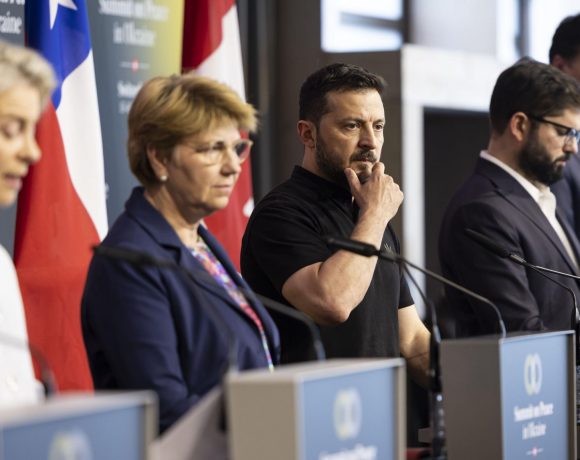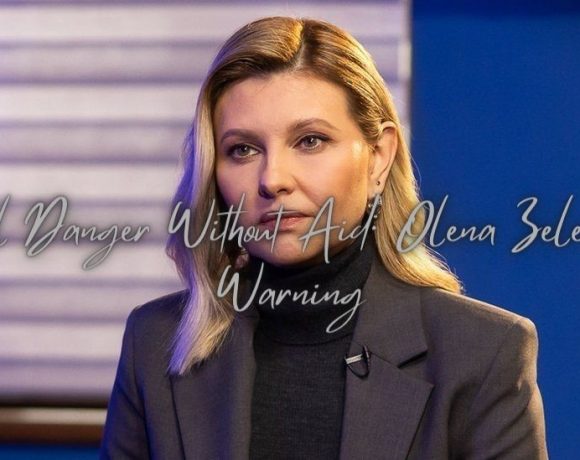
Kyiv would hold peace talks with Russia immediately if Moscow withdrew from all Ukrainian territories, according to President Volodymyr Zelensky. Speaking at the conclusion of a peace summit in Switzerland, Zelensky expressed skepticism about Russian President Vladimir Putin’s willingness to end the conflict, emphasizing the need to stop him by any means necessary, whether military or diplomatic. He acknowledged that Western aid alone was insufficient to secure victory but noted that the summit demonstrated sustained international support for Ukraine.
The summit ended with many countries reaffirming their commitment to Ukraine’s territorial integrity and adopting a document that attributed the war’s suffering and destruction to Russia. However, some attendees, including India, South Africa, and Saudi Arabia, did not sign the document. The summit aimed to gather broad backing for efforts to end the war, attracting over 90 countries and international organizations. Notably, Russia and its ally China were absent, casting doubt on the summit’s effectiveness. Some participants, like Saudi Arabia and Kenya, were not Ukraine’s staunchest supporters.
The final document called for Ukrainian control over the Zaporizhzhia nuclear power plant, currently occupied by Russia, and referred to the conflict as a “war,” a term Moscow rejects. It also demanded the exchange of all prisoners and the return of children abducted by Russia. Contentious issues, such as the status of territories under Russian occupation, were deferred for future discussion.
After the summit, Zelensky thanked the attendees for their independence in attending despite Russian pressure. He reiterated that Ukraine had always sought peace and that Russia could start negotiations by withdrawing from Ukrainian territories. He also clarified that China was not Ukraine’s enemy and called on Beijing to engage seriously in peace efforts.
Dutch Prime Minister Mark Rutte highlighted the unity among attendees in seeking peace, despite differing opinions on achieving it. He emphasized shared principles, such as opposing invasions, child abductions, manipulation of food supplies, and threats to nuclear safety.
While there was an expectation for unanimous condemnation of Russia’s invasion, Austrian Chancellor Karl Nehammer indicated that not all delegations supported the final statement. Zelensky stated that the summit’s results would be communicated to Moscow, aiming for a conclusive peace agreement at a subsequent summit.
Russia dismissed the Swiss event as unproductive. Putin proposed a ceasefire if Ukraine withdrew from four regions claimed by Russia, but this was strongly rejected by Western leaders, with Italian Prime Minister Giorgia Meloni calling it propaganda and UK Prime Minister Rishi Sunak accusing Putin of spinning a false narrative. Kremlin spokesman Dmitry Peskov later mentioned that Putin did not rule out talks with Ukraine but insisted on guarantees for their credibility, excluding Zelensky as a participant.
Picture Courtesy: Google/images are subject to copyright

